Maddie MacLachlan has always wanted children.
As a kid, when she played house with her younger sister, Skyler, they pretended to give birth and breastfeed their babies.
Now 16 years old, she focuses more on her studies than on infants. But she still loves kids and would like to be a mom someday.
“I love babysitting,” said Maddie, a high-energy young woman with short, curly hair and a quick smile. “I find it really fun.”
When Maddie learned she had cancer last year, the news came with one extra, difficult blow: Her treatments might cause infertility.
“I had cancer, I was losing my hair, and now this,” she said.
However, Maddie also learned about a new program available at Spectrum Health Helen DeVos Children’s Hospital—ovarian tissue cryopreservation.
She could have one ovary removed and frozen for later use, providing a possible option for bearing children in the future.
‘Very, very critically ill’
Maddie opted for the surgery, but it was not an easy decision. She had so much to absorb already.
In fall 2020, as a 14-year-old freshman at Mona Shores High School, Maddie lived a busy life filled with schoolwork, friends and volleyball.
She made several trips to her doctor and an allergist because she had trouble breathing when she exercised. She woke up every morning with a swollen face.
“It felt weird. I felt like a thumb was pressing on my windpipe constantly,” she said. “Lying down, I sounded like Darth Vader trying to breathe.”
Eating became difficult, too. She often threw up after a meal, so she started to eat less and less.
She had lost 15 pounds by the time she arrived at the Ethie Haworth Children’s Cancer Center at Helen DeVos Children’s Hospital for tests in October 2020.
A scan showed petite and slender Maddie had a mass in her chest the size of a milk gallon.
“She was very, very critically ill,” said Allison Close, MD, her pediatric oncologist. “All the major parts of her airway and the blood vessels in her chest were very compressed.”
Doctors admitted Maddie to the intensive care unit and she underwent an emergency procedure to drain fluid from her chest, as well as a biopsy.
Because of the severe compression of her airway, she could not be sedated. She received only nitrous oxide and local anesthesia for the procedures.
“Not everyone could do that, for sure,” Dr. Close said. “She is a very brave and resilient young lady.”
The biopsy showed Maddie had primary mediastinal B-cell lymphoma, a form of non-Hodgkin lymphoma.
Maddie remembers talking with Dr. Close and hearing that her cancer could be treated with chemotherapy. That she would be OK.
“But I was in shock,” she said. “I was like: No.”
Risks of infertility
Maddie received her first chemo session and then went home for two weeks.
Speaking privately with Maddie’s parents, Nicky and Brian, Dr. Close explained that Maddie would be at an increased risk for future fertility issues.
Dr. Close is the director of Spectrum Health adolescent and young adult services and the oncofertility program, which provides fertility counseling and risk assessment for young cancer patients.
Chemotherapy can deplete egg stores. It can lead to early menopause—which could occur in a woman’s 20s, 30s or 40s. And in some cases, a young woman goes into menopause immediately following chemotherapy.
If they could safely delay treatment, Maddie could consider having eggs removed and frozen.
But that requires injections and at least a two-week wait, as well as a medical procedure that involves sedation.
“Clearly, the mass was so large, there was no way to wait that long and no way to sedate her,” Dr. Close said.
She explained that ovarian tissue cryopreservation has become available in recent years for young women who are at significantly increased risk for fertility issues, including infertility or early menopause.
“It is not considered experimental, but it is still very new and cutting edge,” Dr. Close said. “There has only been about 200 live births worldwide.”
If Maddie chose that option, the surgery would be performed before her next chemotherapy session in two weeks.
At home, Nicky and Brian discussed ovarian tissue preservation with Maddie.
“It was a hard discussion,” Nicky said. “You don’t normally, at that age, have to talk about whether you want to have children and what might happen.”
At first, Maddie was not sure what to do.
“I was just freaked out that this was a problem at all,” she said.
She knew that, even if she underwent the surgery, she had no guarantee that it would work if she decided to use the frozen ovarian tissue to have a child someday.
“We let her know that if it doesn’t work, there are other ways to have children, like adoption or surrogacy,” Nicky said. “There is definitely always a way to be a mom.”
Maddie and her parents talked about the pros and cons of the procedure.
Ultimately, Maddie decided, “There are zero cons except it’s a surgery.”
Two weeks later, she underwent laparoscopic surgery at Helen DeVos Children’s Hospital, performed by pediatric surgeon Elliot Pennington, MD.
Dr. Pennington made three small incisions, through which he inserted a camera and long instruments.
He surgically removed an ovary and placed it in a special solution to prepare it for cryopreservation. He cut off a tiny piece to be analyzed by a pathologist to look for any obvious cancer cells.
The ovary was shipped to the University of Pittsburgh, where it was processed into small strips and frozen at minus 80 degrees.
“Once it is all processed, it gets stored for years or decades until she is ready to use it,” Dr. Pennington said.
Making that option available to young women with cancer “is super gratifying,” he said. “We want to offer future options for their fertility if they choose to do so. We want to leave every door open for them.”
Looking to the future
Recovering from surgery was not easy. It hurt to breathe, walk, sit up—and especially to laugh.
“It is not fun,” Maddie said. “You don’t realize how much you use your abs.”
But she takes comfort knowing the operation might help her have a child someday.
“That has just always been something I wanted,” she said.
If Maddie decides to use the preserved tissue, it can be implanted on her remaining ovary, into her pelvic/abdominal cavity or possibly used for in vitro fertilization
And it may not be needed, Dr. Close said.
She may be able to get pregnant with eggs from her remaining ovary.
“We don’t know everything that goes into why someone’s fertility will be affected or not,” Dr. Close said. “We want to make sure we have options for people if they are interested.”
Whether to undergo ovarian tissue cryopreservation is an individual decision, and Dr. Close encourages parents and young women to discuss it together.
“There is no right on wrong decision for this,” she said. “Our job is to educate families whose children are at risk for future infertility so they can make the decision about what they want to do.”
Research shows that future fertility is a major concern of cancer survivors—and that having this information available can help them cope.
“It’s devastating to talk to patients now who are in ovarian failure, who didn’t have this option because it wasn’t around then, and who are devastated because having a biological child is not a possibility for them,” she said.
For young men facing cancer treatment, sperm banking is an option. Also, an experimental study is testing the use of testicular cryopreservation for boys who have not reached puberty.
A new view of life
Maddie went through four months of chemotherapy, wrapping up in January 2021.
She has been in remission for a year.
“Maddie had a tremendous attitude about the whole process,” Nicky said. “As parents, it impresses us immensely. We couldn’t believe how strong she was inside.”
Maddie expressed gratitude for the compassionate people she met in the hospital—nurses, aides, doctors and those working in environmental services and patient transport.
“There are just some special people here,” she said.
She has returned to her wonderfully busy life, playing volleyball, hanging out with friends and taking a challenging curriculum filled with advanced placement classes.
Though glad to put her cancer treatments behind her, the experience now shapes her career goal. She plans to become a biomedical scientist—specializing in cancer research.
This summer, she’s spending two days a week in an internship with a Michigan State University biomedical scientist.
Through her illness and treatment, Maddie said she has developed a deeper appreciation for life.
“Life is valuable,” she said. “I think I have become a better person, more understanding of people’s journeys. I like who I have become better.”
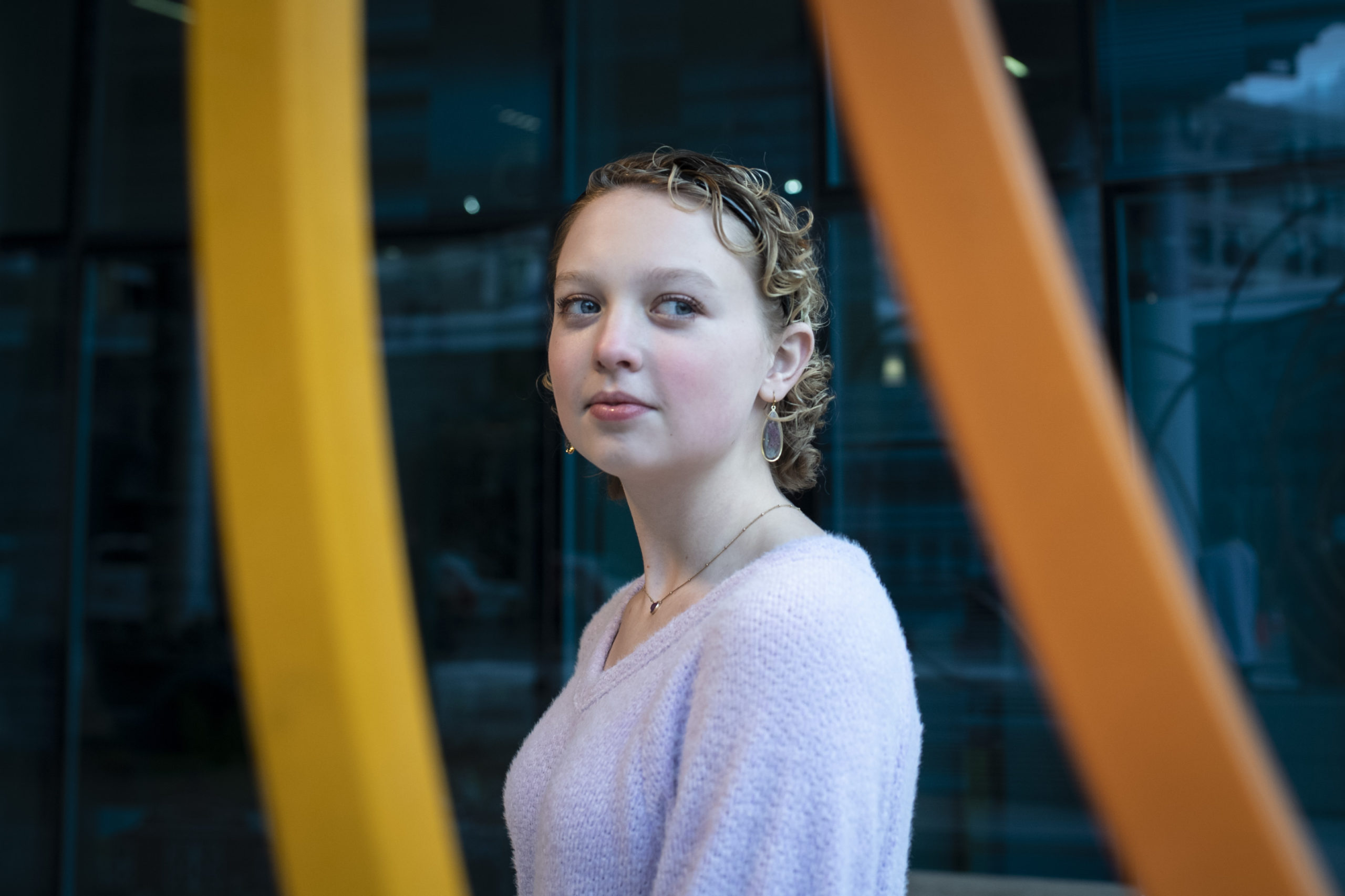
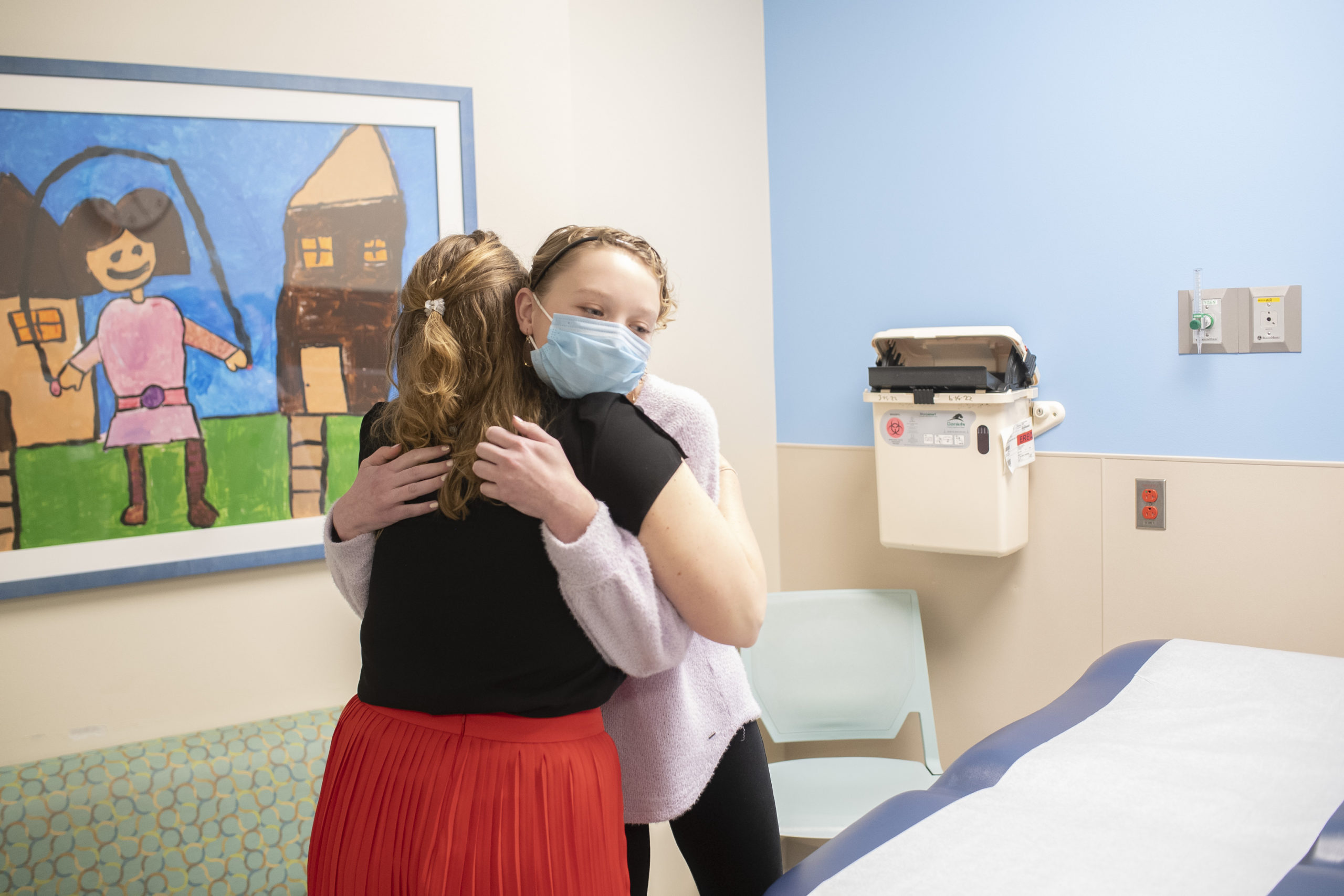
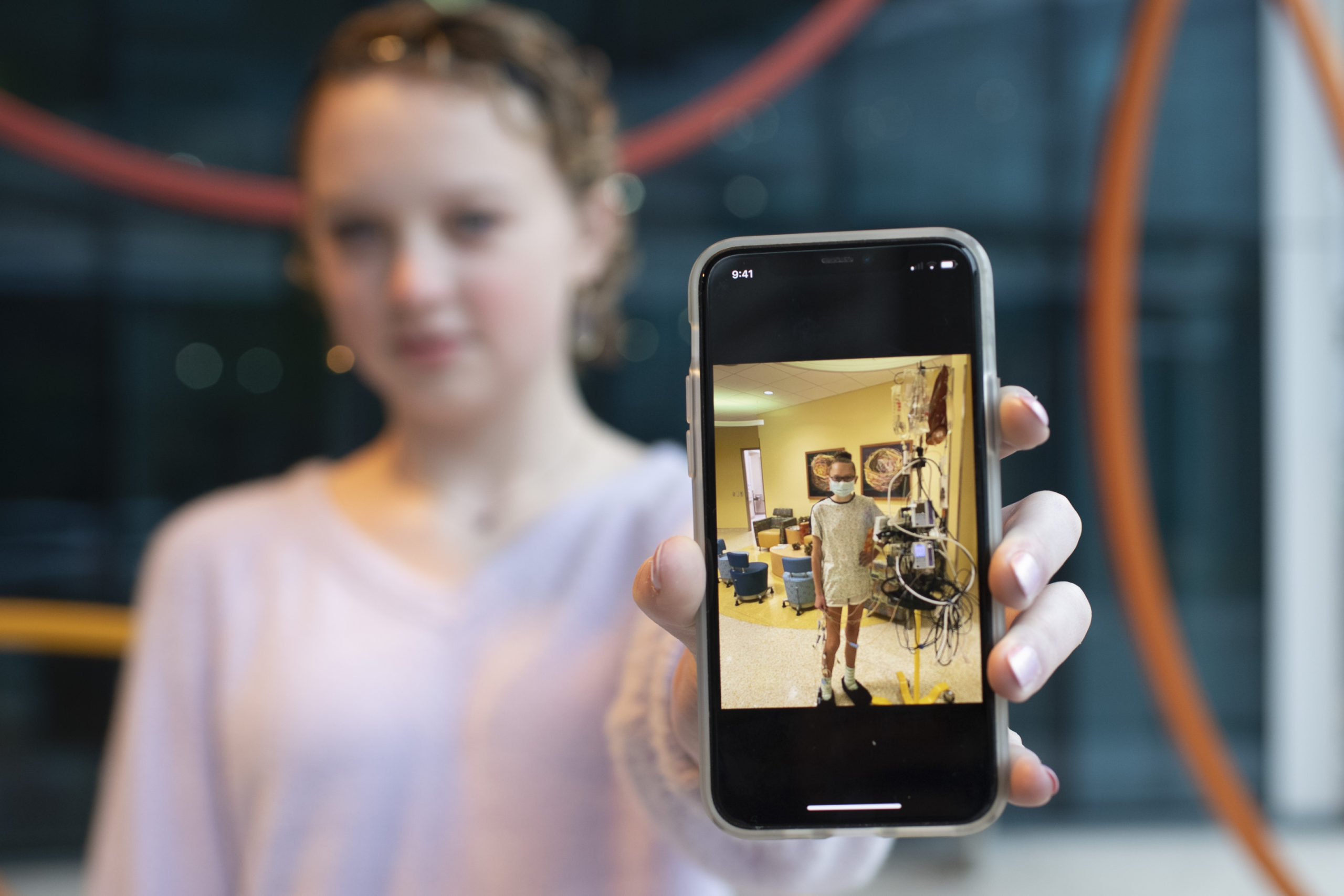
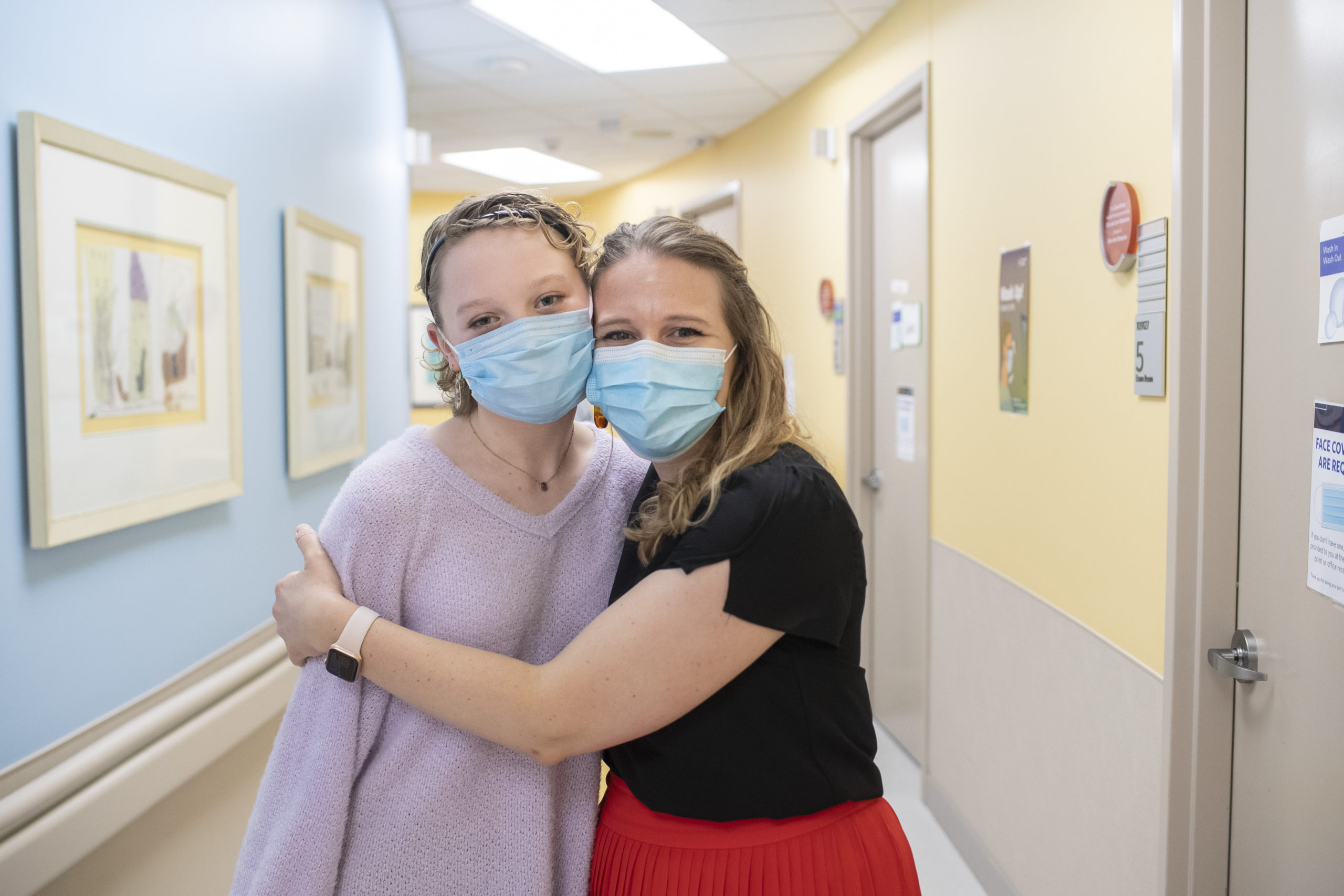
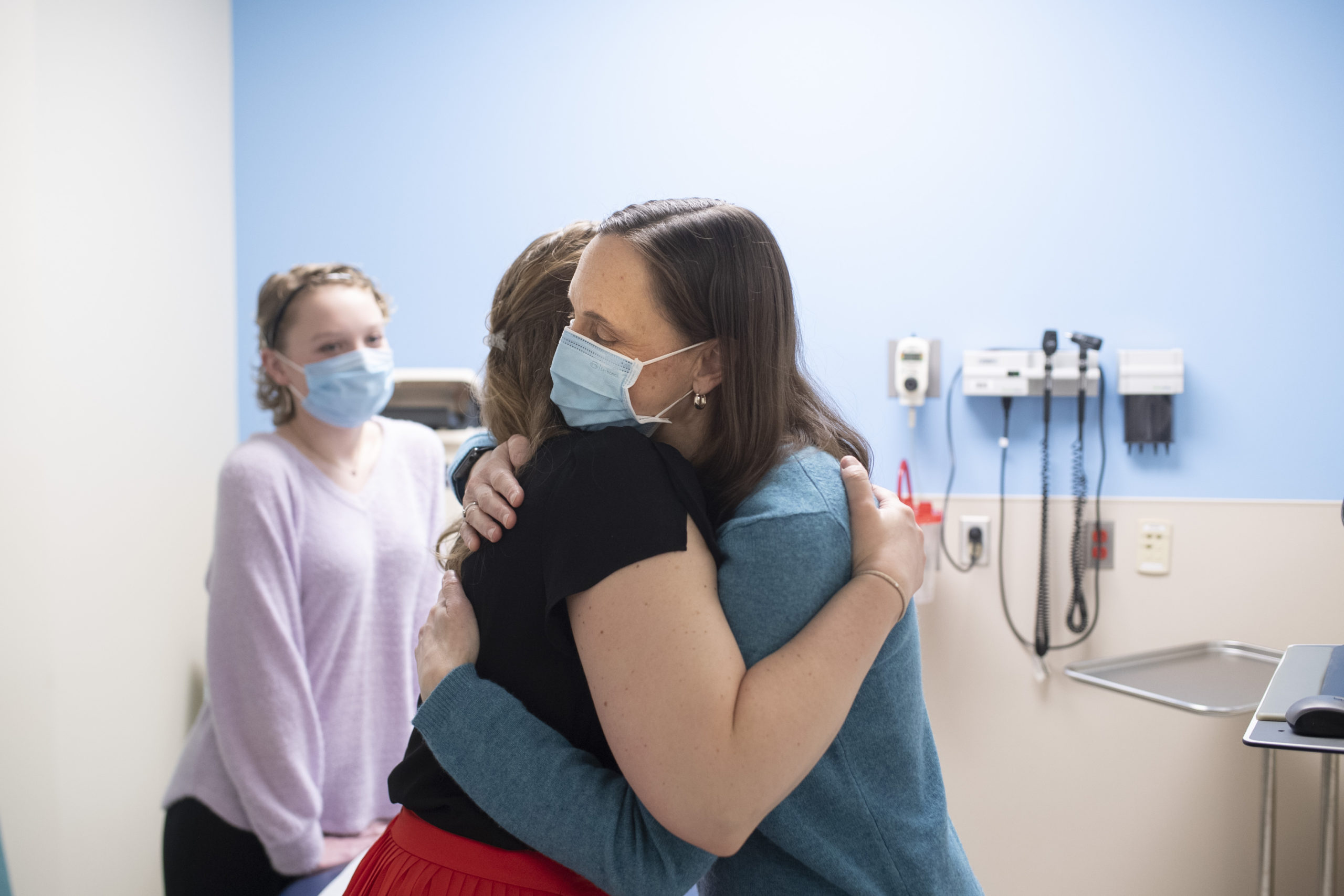
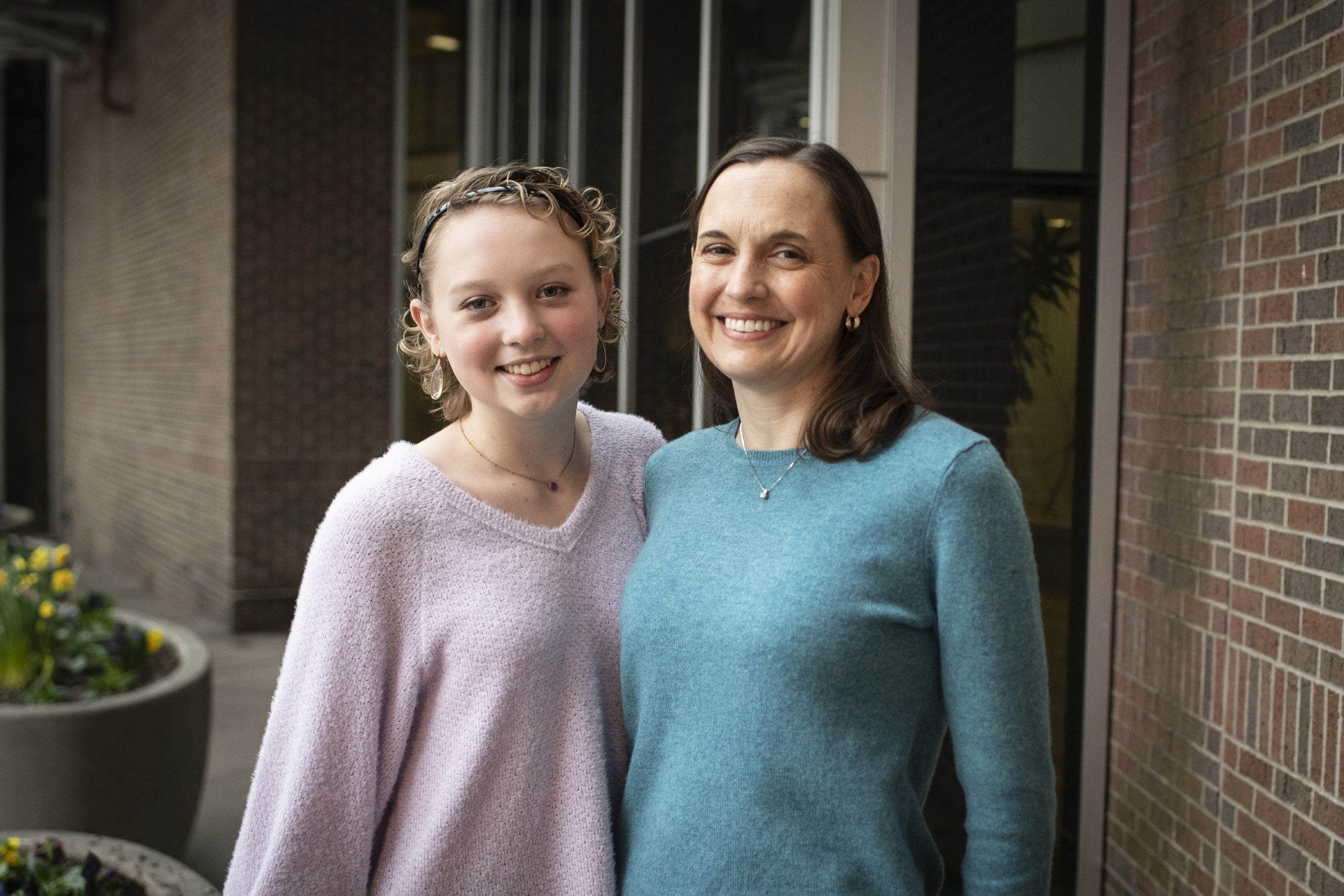
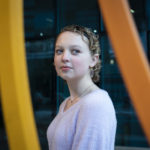
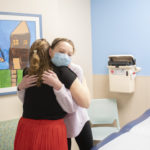
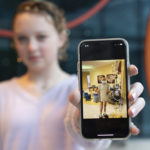
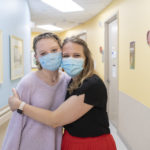
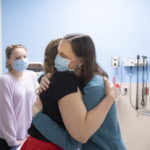
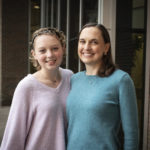
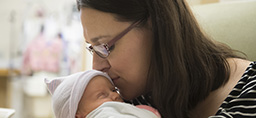 /a>
/a>
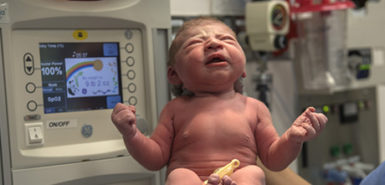 /a>
/a>
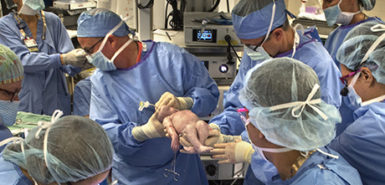 /a>
/a>